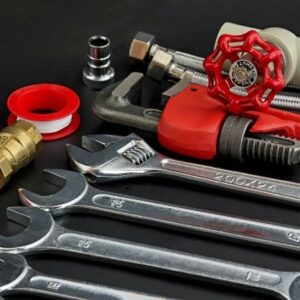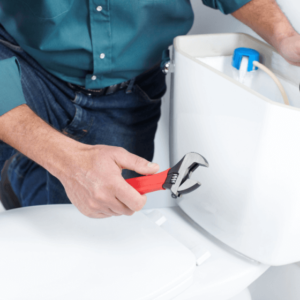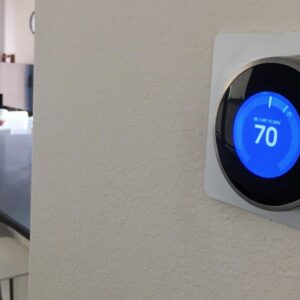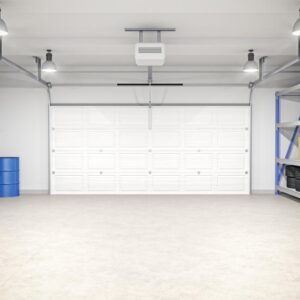Some minerals in your water can create a problem known as water hardness. Hard water often leaves behind filmy soap scum in the bathroom and kitchen, destroys appliances, and dries out your skin and hair. Unfortunately, over 85% of homes in the United States have hard water. Water softeners help prevent issues from hard water. These essential home systems protect your home from the effects of hard water while saving you time and money. Find out about the benefits of water softeners for your home.
What Is a Water Softener?
A water softener is a whole-house filtration system that removes magnesium and calcium from the water. If these minerals remain in the pipes, you may have issues with hard water. A water softener uses a process called ion exchange. Over time, hard water leaves the water pipes with scale buildup, clogging them and decreasing water pressure in the home. Scaling from hard water reduces the lifespan of common household appliances, including ice machines, dishwashers, and coffee makers. Hard water can also damage hot water appliances. When the water temperature rises, more magnesium and calcium build up and solidify, hardening inside your water heater.
Without a water softener, homeowners need to add extra detergent to prevent clothes from looking dingy. You may also notice filmy scum buildup on shower curtains or pull streaky dishes after a session in the dishwasher. Cleaning up the side effects of hard water costs a significant amount of energy, time, and money. Installing a whole-house water softener is one way to prevent all the issues associated with hard water.
How Does a Water Softener Work?
Water softeners remove magnesium and calcium through the ion exchange process. Salt helps in this process. Without salt, the resin beads would not become charged with negative ions. When the hard water enters the softener, it flows through the resin bead bed. Those plastic beads are charged with sodium ions, meaning they have a negative charge. The magnesium and calcium minerals are positively charged and known as cations. Opposites attract, and the positive charges of the minerals become attached to the negative resin beads. As a result, the beads take hold of those mineral ions, removing them from the passing water. The resin beads take away all the hardness of the water. Now, “softened” water will flow back into the home.
What Are Water Softener Salts?
Water softeners need salt to improve the water quality, eliminate hard water minerals, and help the ion exchange. Water softener salts ensure that the hard water minerals head to the resin beads. Water softener salts are usually made with sodium chloride (NaCl). There are many types of water softener salts on the market. The kind of salt depends on the water hardness level and the homeowners’ personal needs. No matter what salt is used, homeowners should add it to the water softener every four to six weeks. Those who have water softeners in their homes should check the salt levels regularly and fill the softeners when necessary. While these salts do not go “bad,” they will absorb moisture and become harder to dissolve in the water.
Types of Water Softener Salts
There are several types of water softener salts on the market. Each one has benefits and disadvantages.
Pellet Salt
This is the cleanest salt on the market. A brine solution is used in the mining process, allowing moisture to evaporate from the pellets. While this salt is the most expensive option, it is the best choice for most water softeners.
Rock Salt
Rock salt is made from evaporated seawater. This salt contains high levels of calcium and magnesium. Rock salt also has a lot of impurities, so it’s not the ideal option for water softeners.
Solar Salt
Solar salt, also known as evaporated salt, has a higher level of impurities. This salt is another type created from evaporated seawater. While it is more costly than rock salt, it is easier to find in most areas. Solar salt has higher levels of sodium.
Potassium Chloride
Potassium chloride is a sodium-free alternative for your water softener. This synthetic product does not contain any natural minerals.
The type of salt you need for the water softener depends on the hardness of your water. Those who have very hard water will want to choose a product that is high in calcium and magnesium. Those with softer water can select less mineral-heavy options. Always choose a salt that is specifically designed for the water softener system. While you may want to add table salt to the softener, it is known to damage these delicate systems.
Water Softener Maintenance Tips
Along with checking the salt levels, homeowners will want to perform other types of maintenance on these systems. You should check the water softener system at least once a month. If the salt levels are low, make sure to add more to the system.
The right type of salt can make all the difference in the performance of the water softener system. Check with the manufacturer and look at the company’s recommendations. When you don’t use suitable salt for the softener, salt bridges and mush will develop in the tank.
Water softeners need to be cleaned on a regular schedule. Homeowners can add a designated water softener cleanser to the unit. You should add these cleansers every four months to keep the system performing optimally.
Finally, always check on the water softener’s Venturi valve and nozzle. Over time, grime can build up in these areas. Keep them clean to keep your water heater operating safely.
Most Common Water Softener Problems
Even with the best maintenance, homeowners can run into issues with water softeners. Resin beads are designed to last the lifetime of the water softener, but they can deteriorate. If you see small particles floating within the softener system, it could be time to replace those resin beads.
All water softeners contain motors and other moving parts. If the motor stops working, you will need to replace that part or purchase a new water softener.
As previously mentioned, salt levels need to be maintained for maximum effectiveness. Always check the salt levels and add more if the water softener runs low. Always check the manufacturer’s recommendations if you don’t know how much salt to add. You do not want to add too little or too much to the water softener system.
Water softeners are prone to clogs from salt and hard water minerals. You might find clogs in the filter screen or the brine line. Take these components out of the water softener to clean them thoroughly. Regular cleaning helps the system’s performance and keeps any unwanted odors or flavors out of your water.
Water Softener Systems Play a Vital Role
Water softeners are necessary for your home to keep hard water out of the pipes. By using the right salt and performing basic maintenance, your water softener will operate for many years without any trouble.
Now that you understand the importance of a water softener system, you can prevent hard water from causing issues throughout your house. Find a True Value store near you to see a variety of water softeners and salt products for your home.










